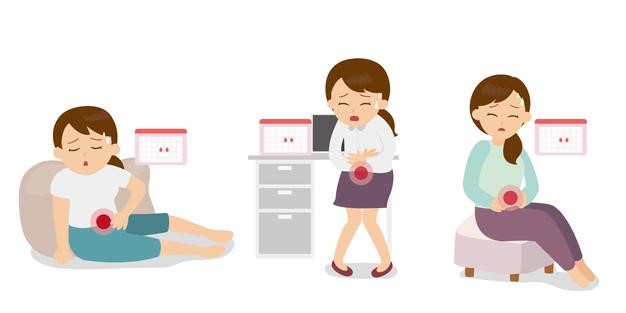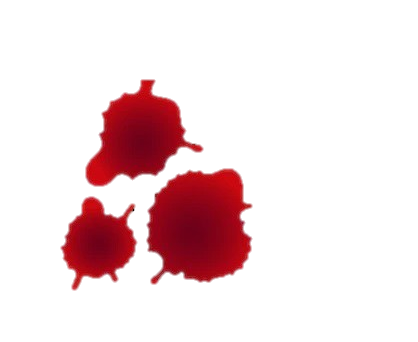
Name: Female, 36 years old
Date: June 1st, 2022. First visit
Chief complaint: Scanty period for 3 months.
After giving birth to her second child a year prior, patient, 36, found that her menstrual cycle was inconsistent, occurring at random periods both early and later. She initially didn’t give it much thought, but three months ago, after recovering from a Covid-19 infection, she started to pay more attention. Since then, she had regular menstrual cycles, however, her menstrual flow has decreased, particularly over thepast two months. Normally, her period lasts for about threedays and requires only about 3 sanitary pads. She made an appointment out of concern for her health in the expectation that Chinese medicine would help her menstrual bleeding.
I listened to patient and then asked her to explain the color of her most recent period and whether any additional bodily discomforts came along with it. She claimed that both of her breasts were easily sore and that her menstrual color was purple and dark, with blood clots, mental instability during menstruation, etc. Then patient went on to say that her regular job pressure was quite high, she had trouble sleeping because of the necessity to get up in the middle of the night to care for her kids, and all of these factors combined to ruin her health. When Mrs. Lee’s symptoms, tongue and pulse diagnosis are combined, it is not difficult to conclude that her scanty period is caused by long-term high emotional tension and little rest, resulting in liver qi stagnation and poor blood flow.
After explaining to patient the causes of her scanty periods, I gave her a prescription for some scientific Chinese medication to disperse the stagnation in her liver Qi. I also told her to take it as directed, get plenty of rest, and return before her next period.
Second visit : July 3rd 2022
Patient returned a month later for a check-up and informed me about her menstrual period last month after taking Chinese medicine. She noted that after consuming Chinese medicine at the end ofJune, despite the fact that the entire menstrual cycle only lasted three days, the menstrual flow increased slightly, notably on the second day of the period, and at least four sanitary napkins were used throughout the period. After gathering her medical history and analyzing her tongue and pulses, I discovered that, while Ms. Lee’s symptoms improved, her liver qi stagnation remained, so I proceeded to prescribe some scientific Chinese medicine for her.
Third visit : Aug 28th 2022
When patient returned, she explained that her period from last month was still on schedule. The entire period lasted for four days, and the amount of menstrual period on the first day of menstruation was relatively small. However, the menstrual flow increased on the second and third days, necessitating the replacement of two two sanitary napkins each day. On the fourth day, there were still a few blood clots in the menstrual flow, and the fifth day was considered to be the end.
Even though patient symptoms have significantly decreased and she has a tendency to return to previous health state, I nevertheless cautioned her to be aware of her mood swings, express her feelings when appropriate, and continue to pay attention to rest before prescribing medication for her to continue taking.
Last visit : Oct 30th 2022
Patient made follow-up visits two months later. She reflected on her observations of the situation over the previous two months and discovered that the menstrual flow was essentially the same as in July, with the menstrual period remaining at 4 to 5 days, with the maximum amount occurring in the second and third days. These two days also saw the highest number of sanitary napkins used, and the menstrual flow dripped until the end of menstruation on the fourth and fifth days.
I once again advised patient to always pay attention to her emotions, maintain a balance between work and life, cultivate regular living habits, and continue observing her menstruation despite the fact that her liver qi stagnation had improved after I examined her tongue and pulse. If she observes a recurrence of scanty periods, she might stop by to visit.
Criteria for scanty period

In my clinical practice, I see a lot of ladies who are concerned about their menstrual cycle. Menstrual flow is one of the factors used to determine if menstruation is smooth, along with whether the menstrual period is regular, the color of menstruation, and the symptoms that occur before or during menstruation. So, how can we estimate the amount of menstrual flow?
The number of days of a normal menstrual period is at least 3-7days, and the menstrual flow in a cycle must not be less than 20ml. Clinically, scanty menstrual bleeding can be defined as long as the following conditions occur.
- The menstrual cycle is normal, but the menstrual flow is significantly reduced.
- The menstrual cycle is less than or equal to 2 days, and the bleeding is mild or spotty.
- During the menstrual cycle, use no more than 4 sanitary pads.

Common factors that contribute to scanty menstrual bleeding
1. Bad lifestyle habits

Bad lifestyle practices include sleeping in, waking up late, reversing day and night, not exercising, etc. The kidneys’ ability to store essence and operate normally will both be negatively impacted by long-term practice of these routines. Kidney deficit results from the storage of insufficient or unbalanced essence in the kidneys.
Scanty period caused by kidney deficit is characterized by: a gradual decrease in menstrual flow and pale, thin blood.

2. Abnormally high emotional tension

People’s emotions (emotions) are founded on the qi and blood of the internal organs as the material basis, and emotions themselves are people’s typical responses to events taking place in the outside world. Anger damages the liver, worry damages the spleen. Since the liver is primarily responsible for regulating qi flow and emotions, rapid, intense emotional changes or persistent, excessive emotional stimulation will have a direct impact on how well the internal organs work. When liver qi disfunction results in irregular qi and blood circulation throughout the body, it manifests as liver qi stagnation, which long-term constitutes the manifestation of qi and blood stasis.
Scanty period caused by liver qi stagnation is characterized by: They are most commonly associated with substantial mood swings and reduced or spotty menstrual flow. Menstruation is purple and black, with blood clots.

Scanty period caused by qi and blood stasis is characterized by: menstrual flow gradually decreases, noticeable lower abdominal pain before or during menstruation, and menstrual color is dark with blood clots.

3. Poor eating habits

Unhealthy diets include unplanned eating habits, inconsistent eating schedules, intermittent dieting, and even an excessive liking for a particular food or flavor. Speaking of food, it is undeniable that the stomach and spleen, the two digestive organs, are intertwined. Since the spleen and stomach are the source of qi and blood production, this means that qi and blood are transformed by the spleen and stomach from the foods we consumed. Poor eating habits will affect the digestion and absorption of the spleen and stomach, and their function of regulating and digesting food and fluid will decrease, resulting in phlegm dampness. Spleen and stomach function obstruction will impede the generation of qi and blood, which frequently results in blood deficiency.
Scanty periods caused by phlegm dampness is characterized by: reduced menstrual flow and crimson, sticky blood.

Scanty periods caused by blood deficiency is characterized by: The majority of them are accompanied by dull pain in the lower abdomen during menstruation, diminished menstrual flow, or spotty bleeding.

Afterword

Everyone’s primary aspiration in life should be to maintain good health, and everyone is accountable for their own health. You must maintain a healthy balance between work and life, adopt regular eating and living habits, and become more active in order to improve the issue of scanty periods. After all, life is in motion, and it is precisely these most unassuming lifestyles that are the best details to take care of health. If you have had few or irregular periods for a while, you should seek medical attention right away to prevent the onset of more severe gynecological problems and the subsequent danger to your body.
此文章还有以下语言版本:
![]() 简体中文 (Chinese (Simplified))
简体中文 (Chinese (Simplified)) ![]() Melayu (Malay)
Melayu (Malay)



